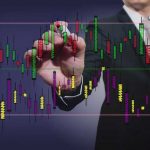
As the chief investment officer of a wealth management firm for nearly 20 years, I have found that success in investing comes when one remains disciplined and continuously searches for value, especially during difficult and volatile markets. Many investment professionals like myself believe the U.S. stock market is more than fairly valued. A number of large money managers believe the market is in a bubble as a result of the ultra accommodative posture of the Federal Reserve these last number of years.
But when investors dig beneath the averages, they will find that stocks are not a monolith and that there are varying degrees of under/(over) valuation. So even in the current environment, I continue to find stocks that are potentially undervalued and that have limited downside risk. One stock that fits this approach is Barnes & Noble (BKS).
The company reported weaker than expected sales in its fiscal first quarter, with comparable store sales down 6%. While operating earnings came in ahead of consensus estimates, the company still recorded a loss and is showing continued signs of struggle to stabilize its financial performance.
So Why the Optimism?
I am not betting that the company can turn itself around on a dime. Nor do I believe that sales and earnings are on the cusp of reaching an inflection point in the near term. But these are not reasons to avoid the stock. Some of the longer term fundamentals for the industry are improving and management has a number of strategic plans to drive higher traffic and sales.
Positive #1 – Valuation
The stock is trading by many measures at distressed levels. The price-to-sales ratio according to Yahoo is hovering around 0.22. The enterprise value-to-EBITDA ratio based on the low end of management’s guidance for fiscal year 2017 is approximately 4.5X. Both of these measures are well below the average for a retail stock.
Positive #2 – Dividend
With an annual dividend of $0.60, the yield is slightly over 5%, much higher than the average stock in the S&P 500 and quite compelling vis-a-vis the yields on most fixed income securities. Some might say that the high dividend is a sign of a potential value trap. However, the company’s financial position is rock solid and the business has relatively modest capital needs. Unless sales take a turn for the worse, I see the dividend as safe.














Leave A Comment